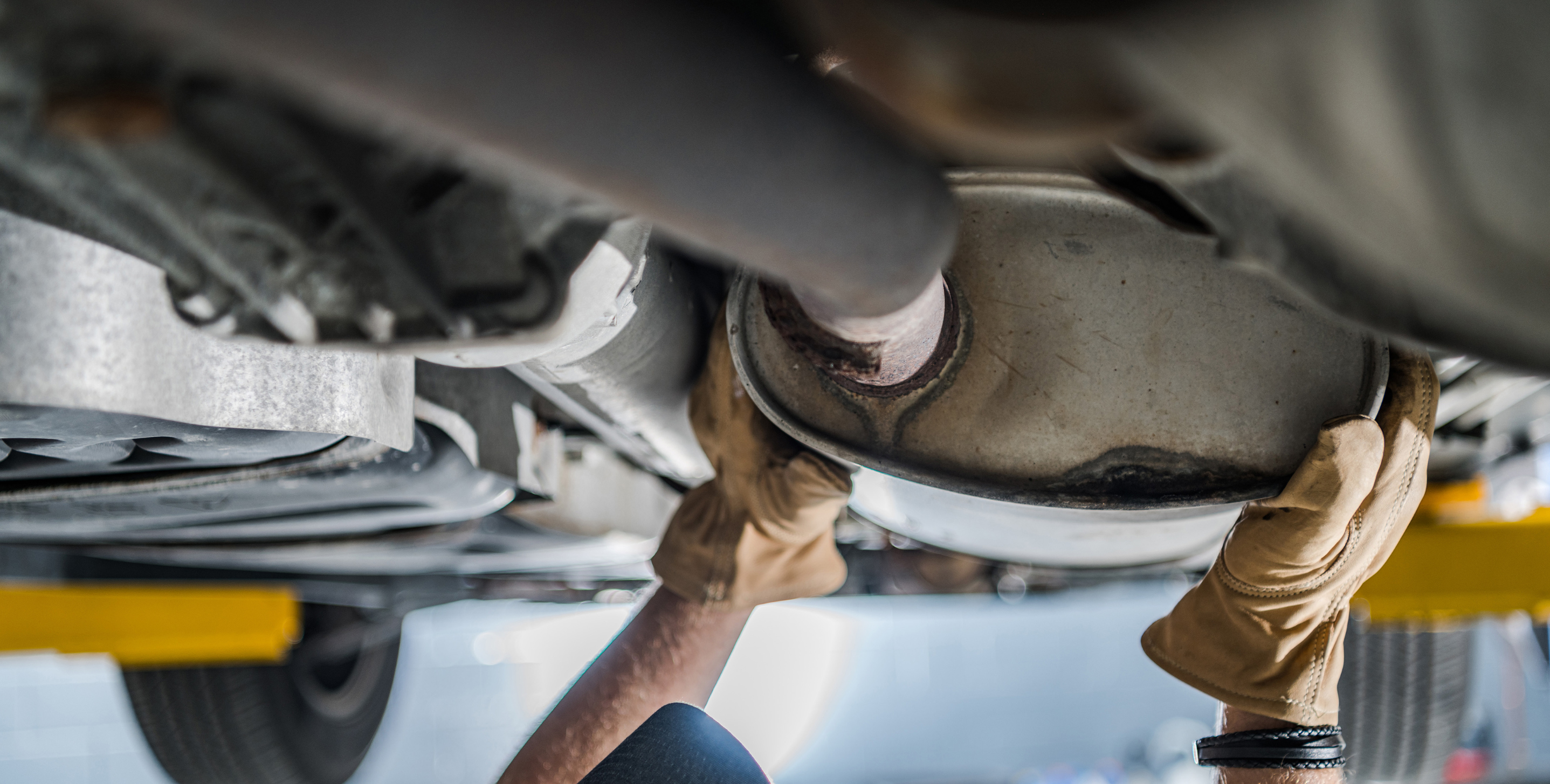We all love to breathe clean, fresh air. Sadly, the cars we drive produce huge amounts of nitrogen dioxide, carbon monoxide, benzene, and carbon dioxide. Not only do these emissions compromise air quality, but they also increase greenhouse gases in the atmosphere. Luckily, professional catalytic converter services can save you all these problems.
A critical part of the exhaust system, a catalytic converter serves as your car’s emission control system. It converts harmful gases in the car’s exhaust into less toxic compounds that won’t harm humans and the environment.
Let’s dive deeper to learn more about catalytic converters.
Understanding Catalytic Converters
Catalytic converters have been around since 1950. However, it wasn’t until 1986 that it became compulsory for all vehicle manufacturers to include catalytic converters in their cars.
The primary objective of this directive was to safeguard you and the environment against vehicular emissions. A catalytic converter features hard-wearing steel and ceramics and helps convert dangerous gases in your car’s exhaust into non-toxic air that you can breathe safely.
If you cut it open, you’ll find ceramic beads or stuff that resembles a ceramic honeycomb coated with precious metals like platinum or palladium. When harmful carbon monoxide gets into the catalytic converter, a chemical reaction turns it into harmless carbon dioxide.
Hydrocarbons also turn into water and carbon dioxide. Likewise, nitrogen oxides turn into oxygen and nitrogen.
Put simply, your vehicle’s catalytic converter neutralizes chemicals that would otherwise harm you and the environment.
Common Catalytic Converter Issues and The Importance of Timely Repairs
A catalytic converter can last for at least a decade if you take good care of it. However, common issues that can kill your converter include contamination, clogging, overheating, and physical damage.
Lead gas is the most notorious contaminant in destroying catalysts. Luckily, it’s quite rare in the United States.
Engine coolant can also contaminate your catalytic converter. This usually happens when it leaks into the combustion system due to a defective cylinder gasket. Engine oil is another contaminant you should worry about.
These fluids can clog your converter, making it hard for exhaust gases to pass through. The engine will, in turn, starve of air and perform dismally.
And what causes overheating?
Excessive quantities of unburned gas from misfiring spark plugs or leaky exhaust valves can cause your catalytic converter to overheat. This problem may also result from a defective oxygen sensor.
Your “cat” is vulnerable to physical damage by road debris and other elements if it’s under the car, like other exhaust system components.
If you ignore any of these issues, you’ll end up spending thousands of dollars on a new converter. But timely repairs can save you the hassle. With proper catalytic converter services, you’ll enjoy:
- Better fuel efficiency: A well-maintained catalytic converter reduces pressure build-up in your vehicle’s engine. So it will burn fuel more efficiently.
- Easier maintenance: You’ll need fewer visits to the auto repair shop because of reduced breakdowns.
- Extended lifespan for your car: A catalytic converter will protect your vehicle’s undercarriage and internal components against corrosion damage, toxic fumes, and other harmful elements.
Professional Converter Repair Services
Do you feel like your car consumes a lot of fuel, but the performance leaves a great deal to be desired? A professional catalytic converter repair service might be all you need to turn things around.
Not sure if your catalytic converter needs some TLC? Look out for these tell-tale signs:
- Sluggish engine performance
- Slow acceleration
- Dark exhaust smoke
- Too much heat under the car
- The check engine light won’t turn off
- A smell of rotten eggs from the exhaust
Don’t wait until your car gives up on you completely. Call a reputable expert when you notice the slightest sign of trouble. The last thing you want is for a minor issue to escalate to thousands of dollars in repairs or replacements.
A mechanic experienced in catalytic converter repairs can diagnose the problem to determine if you should replace or repair your catalytic converter.
Steps in Converter Repair Process
When your converter fails, you may need to either repair it or get a new unit. However, experts usually recommend replacement. They say it’s a safer and easier option.
Furthermore, replacing your faulty converter is the surest way to stop your car from producing harmful gases. Not only that, it will ensure the car doesn’t lose power and compromise its overall performance.
Remember, catalytic converters contain precious metals. So, there’s not much difference in the costs of repairing and replacing a failed converter. Why not just get a new unit and rest easy knowing you won’t experience converter problems, at least in the next few years?
Fortunately, replacing a “cat” is a quite easy process. Keep in mind that the emission control laws prohibit you from replacing a converter with a refurbished or used unit. Be sure your mechanic replaces your defective cat with a brand-new one!
Conclusion
Need a reliable catalytic converter or exhaust repair and replacement in Phoenix? The experts at Performance Muffler can help.
We understand the importance of having every component of your vehicle working at its best. We also know that unless you’re familiar with working on cars, repairing things like the catalytic converter can seem less than straightforward. So we provide professional services that help you understand your car better.
Our experienced technicians can fix issues with your muffler, catalytic converter, oxygen sensors, and other exhaust system components. Give us a call at 602-691-6494 to learn more or schedule catalytic converter services today!

